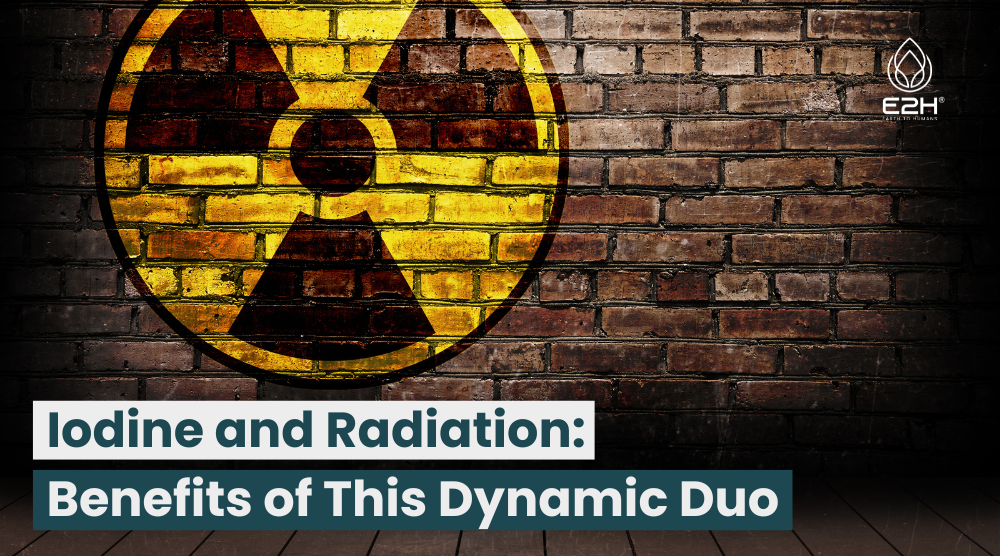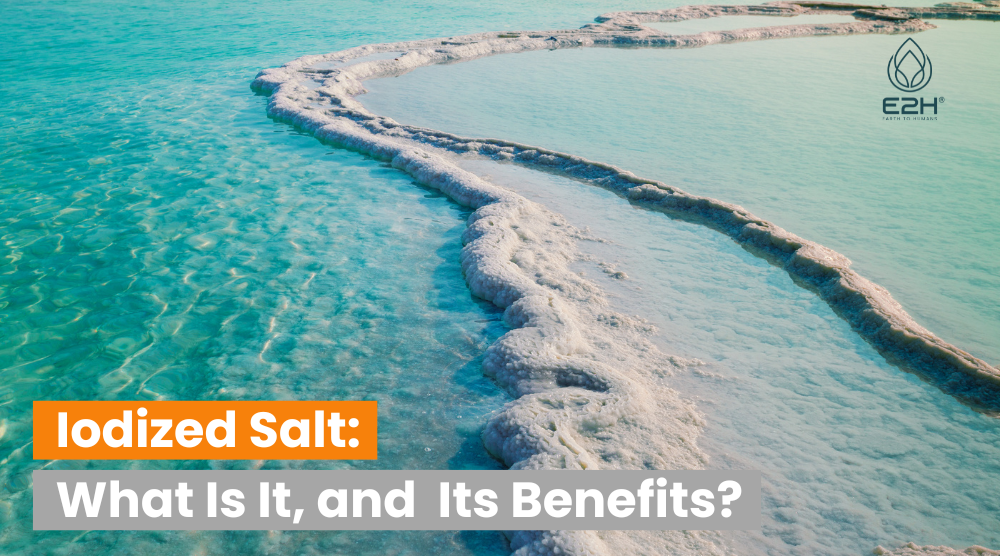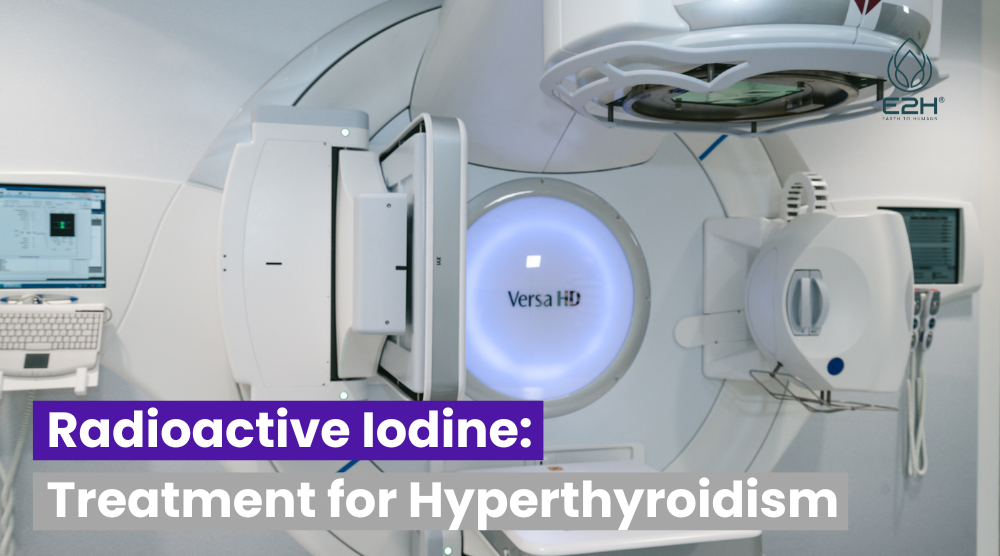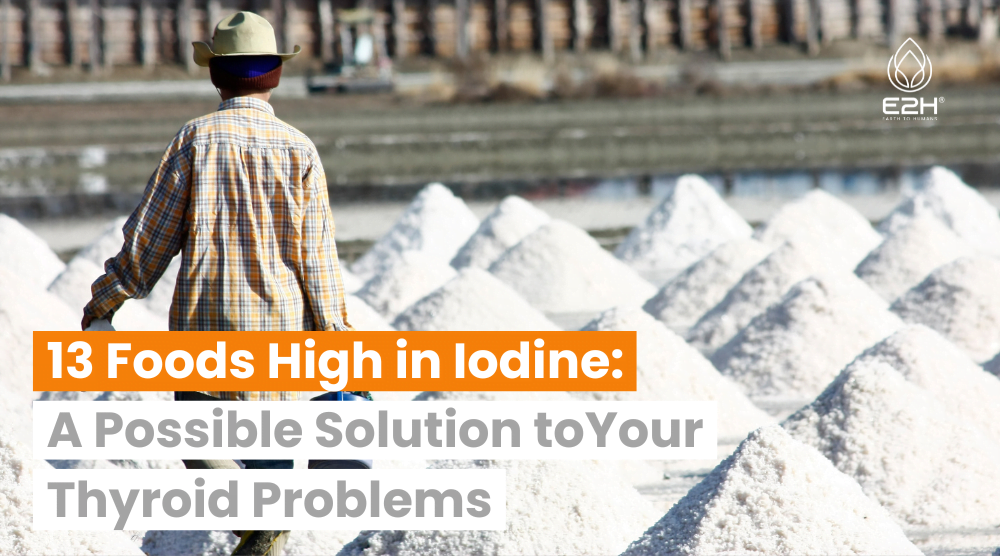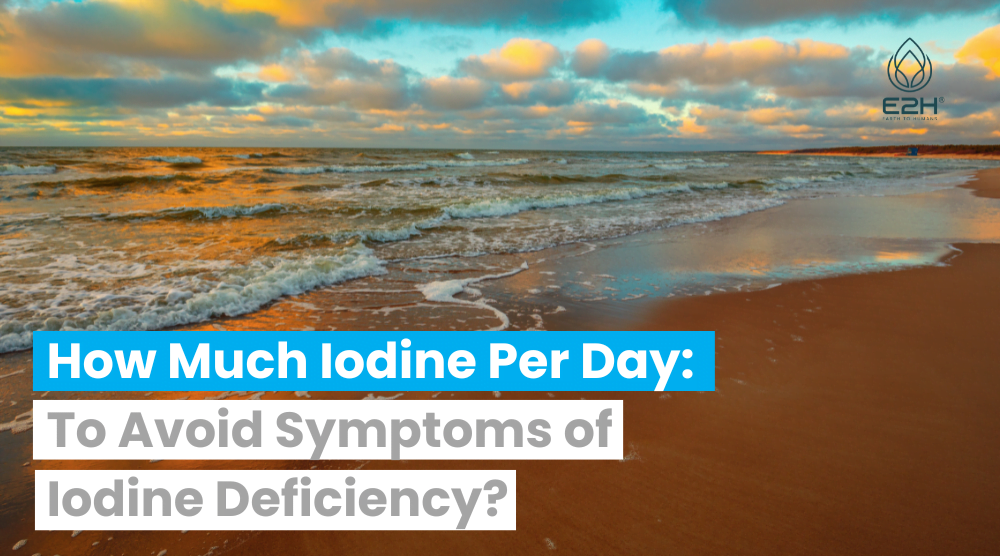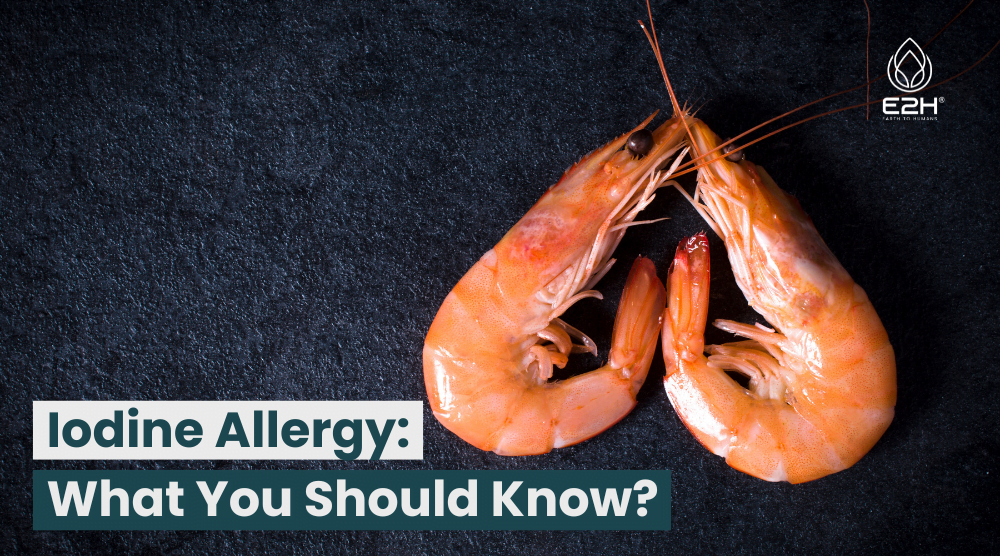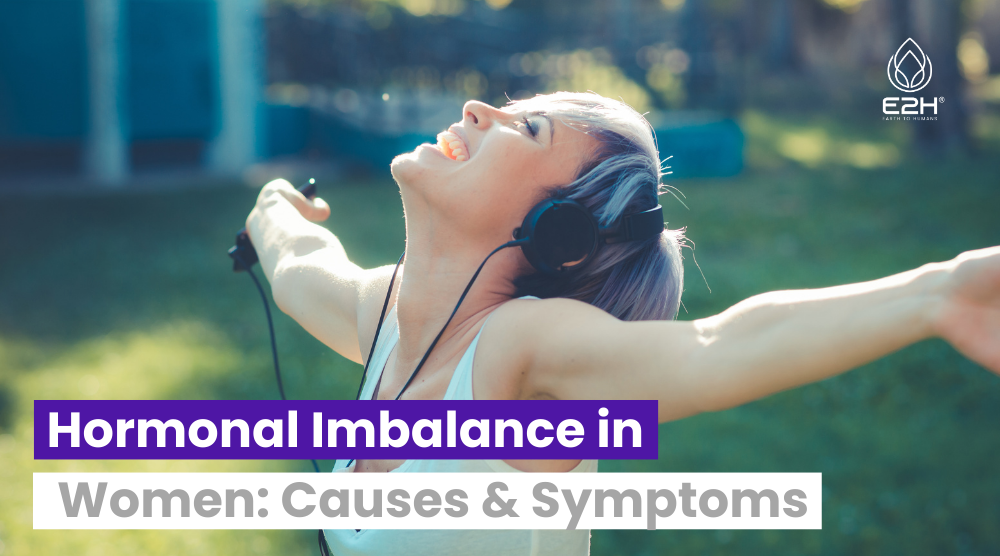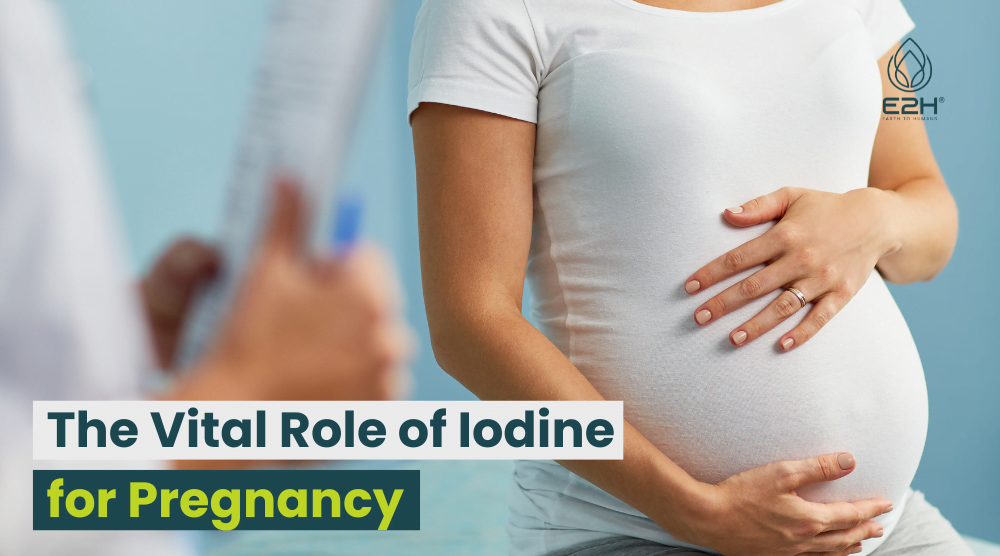Iodine is an essential trace mineral required for maintaining good health. Since the human body cannot produce iodine alone, we must consume it through iodized salt, seaweed, supplements, and fortified foods containing iodine.
You might be thinking about how iodine and radiation are related. It’s easy. Iodine can exist in the radioactive form, which is known to have multiple uses in medicine. Furthermore, it is an important treatment protocol for abnormal thyroid enlargement and cancer.
However, exposure of the normal thyroid gland to radioactive iodine is dangerous. Conclusively, it can be said that radioactive iodine is a two-way sword. So let’s start reading this article; you will get more about the link between iodine and radiation.
What is Potassium Iodide?
A compound called potassium iodide (KI) can help you shield from radioactive iodine. The area of your body most exposed to radioactive iodine is your thyroid gland. So when exposed to radioactive iodine, potassium iodide can prevent your thyroid from ingesting it.
Nonradioactive iodine, which is included in potassium iodide, can lower the danger of thyroid injury. But it would help if you didn’t use it as a daily supplement in an emergency.
Radioactive iodine may be discharged into the air during a nuclear emergency. Your thyroid may be badly impacted by radioactive iodine, increasing your chance of thyroid issues, including cancer.
Is it worth taking iodine against radiation?
Iodine helps as a magical potion during nuclear or radiological emergencies. When you take radioiodine, your thyroid gland is protected by iodine. Therefore, it is beneficial to take iodine against radiation as iodine helps shield our bodies from radiation-induced thyroid cancer. [1]
How does potassium iodide work?
In radiation crises, potassium iodide is a thyroid-blocking substance [2].
Large volumes of radioiodine are released into the atmosphere during a radiation emergency at a nuclear power station. Potassium iodide has assisted those exposed to the radioactive iodine released following nuclear power plant accidents like Chornobyl [3]. Using a potassium iodide floods your thyroid to stop it from absorbing radioactive iodine ions.
Can you rely only on potassium iodide as a radiation antidote?
Radioactive iodine could be discharged in a haze or cloud throughout a nuclear accident, polluting the environment and leading to external exposure. Absorbing radioactive iodine, primarily by only your thyroid, can result from breathing radioactive iodine contamination.
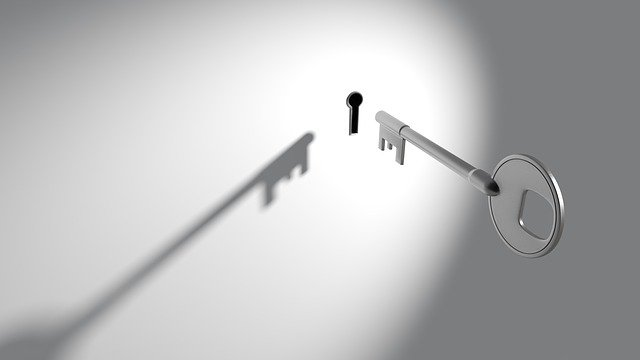
The thyroid gland does not distinguish between radioactive and stable iodine while producing normal thyroid hormone levels [4]. Therefore, if radioactive iodine is breathed or consumed after a nuclear disaster, the thyroid gland absorbs it similarly to stable iodine. Therefore, you can easily rely on potassium iodide as a radiation antidote [5].
How much potassium iodide should I take for radiation exposure?
Age is the primary determinant of developing thyroid cancer risk. The FDA gives priority to groups based on age [6] because KI can reduce hormone levels in the developing fetus and the newborn, babies, and children. In addition, pregnant and breastfeeding women are the most at risk [7].
Therefore, recommended daily intake of potassium iodide for different ages is listed below:
Newborns: 16 milligrams
Children from 1 month to three years old: 32 mg
Children from 3 years to 18 years old: 65 mg
Adults from 18 years to older: 130 mg
Pregnant and breastfeeding woman: 130 mg
What are the other health benefits of potassium iodide?
Sputum in the airways is loosened and broken up with potassium iodide. If you have persistent lung issues, potassium iodide will help you clear your cough so that you can inhale more comfortably, including chronic bronchitis and asthma [8].
This drug is referred to as an expectorant. Along with antithyroid medications, potassium iodide is also used to treat hyperthyroidism, treat the thyroid gland for surgical removal, and treat thyrotoxicosis due to Graves’ disease [9].
It functions by making the thyroid gland smaller and producing fewer thyroid hormones. Potassium iodide protects against pre-existing thyroid disorders and reduces the likelihood of thyroid cancer in radiation emergencies by taking radioactive isotopes of iodine [10].
What are the side effects of too much potassium iodide (KI)?
According to recommended daily intake, potassium iodide is rarely expected to have any adverse effects if eaten correctly. Thyroid-stimulating hormone protection during nuclear radiation is advantageous and outweighs the possible hazards. However, they might also cause minor allergic reactions if you consume too much potassium iodide, which includes skin rashes, metallic aftertaste, burning sensation in the throat, and stomach distress [11].
When to see a doctor to discuss Iodine and radiation?
Consult your doctor if you suffer from a skin allergy, thyroid, or gastrointestinal issues. Do not take iodide supplements without the advice of a doctor. Potassium iodide overdose can cause severe sickness or even death. In addition, you won’t be more protected against radioactive iodine if you take more potassium iodide.
When taken as prescribed, the potassium iodide medicine can help shield your thyroid gland against radiation from a nuclear power plant accident. So, it is better to consult your doctor to know the right dosage amount.
Conclusion
During radiation, potassium iodide is a medicine that can aid in shielding your thyroid. Your thyroid absorbs the nonradioactive iodide that is present in it. This shields the body from radioactive iodine absorption, perhaps reducing the chance of thyroid cancer. It’s essential to only take potassium iodide under medical supervision and at the recommended dosage.
References
1. Ragde H, Blasko JC, Grimm PD, Kenny GM, Sylvester JE, Hoak DC, Landin K, Cavanagh W. Interstitial iodine‐125 radiation without adjuvant therapy in the treatment of clinically localized prostate carcinoma. Cancer: Interdisciplinary International Journal of the American Cancer Society. 1997 Aug 1;80(3):442-53.
2. Research C for DE and. Potassium Iodide as a Thyroid Blocking Agent in Radiation Emergencies [Internet]. U.S. Food and Drug Administration. 2020 [cited 2022 Oct 10]. Available from: https://www.fda.gov/regulatory-information/search-fda-guidance-documents/potassium-iodide-thyroid-blocking-agent-radiation-emergencies
3. Nauman J, Wolff J. Iodide prophylaxis in Poland after the Chornobyl reactor accident: Benefits and risks. The American Journal of Medicine. 1993 May;94(5):524–32.
4. BECKER DV, ZANZONICO P. Potassium Iodide for Thyroid Blockade in a Reactor Accident: Administrative Policies That Govern Its Use. Thyroid. 1997 Apr;7(2):193–7.
5. Iodine thyroid blocking: Guidelines for use in planning and responding to radiological and nuclear emergencies [Internet]. www.who.int. [cited 2022 Oct 15]. Available from: https://www.who.int/publications/i/item/9789241550185
6. Research C for DE and. Frequently Asked Questions on Potassium Iodide (KI). FDA. 2019 Feb 8.
7. Zanzonico PB, Becker DV. Effects of time of administration and dietary iodine levels on potassium iodide (KI) blockade of thyroid irradiation by 131I from radioactive fallout. Health Physics. 2000 Jun 1;78(6):660–7.
8. Miller DW. Extrathyroidal benefits of iodine. Journal of American Physicians and Surgeons. 2006 Dec 22;11(4):106.
9. Takata K, Amino N, Kubota S, Sasaki I, Nishihara E, Kudo T, et al. Benefit of short-term iodide supplementation to antithyroid drug treatment of thyrotoxicosis due to Graves’ disease. Clinical Endocrinology. 2010 Jun 1;72(6):845–50.
10. Boice JD. Radiation protection-induced Thyroid Cancer—What’s New? JNCI: Journal of the National Cancer Institute. 2005 May 18;97(10):703–5.
11. Sterling JBarton, Heymann WR. Potassium iodide in dermatology: A 19th-century drug for the 21st century? Uses, pharmacology, adverse effects, and contraindications. Journal of the American Academy of Dermatology. 2000 Oct;43(4):691–7.
